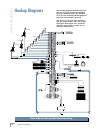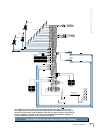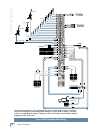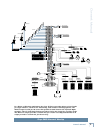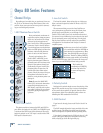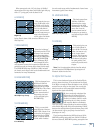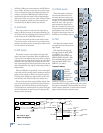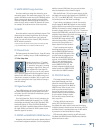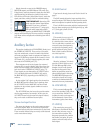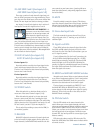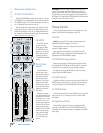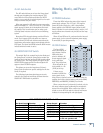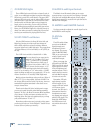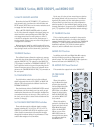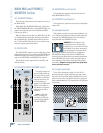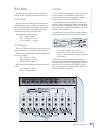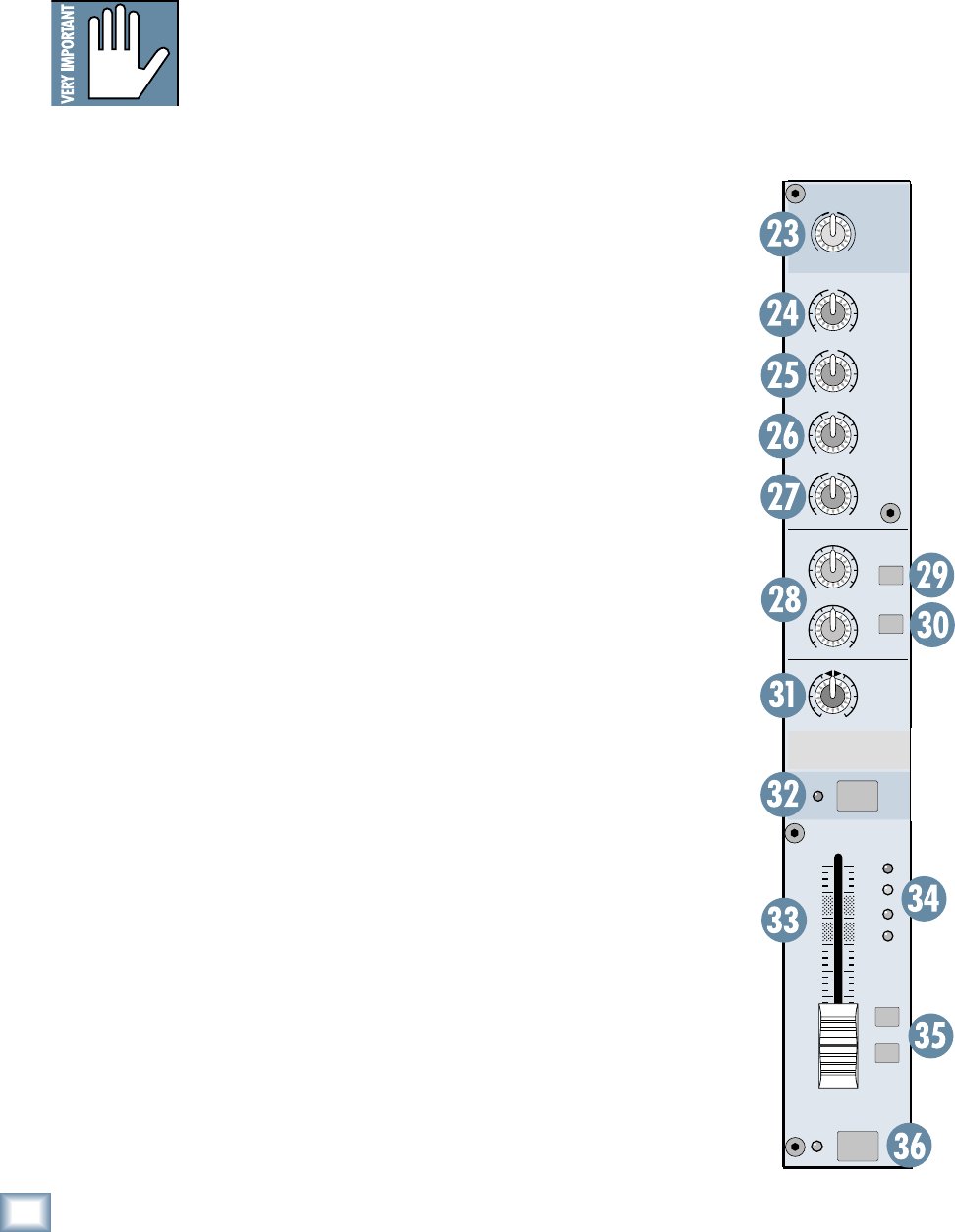
14
ONYX 80 SERIES
ONYX 80 SERIES
Soloed channels are sent to the PHONES output,
MONITOR outputs, and SOLO Meters. PFL mode (Pre-
Fader Listen) sends the channel’s signal after the GAIN
and EQ controls, but before the channel fader, to the
PFL solo bus. AFL mode (After-Fader Listen), sends the
signal post-fader, making it ideal for mixdown soloing.
VERY IMPORTANT: Remember, PFL
mode taps the channel signal before
the fader. If you have a channel’s
fader set way below “U” (unity gain),
PFL solo won’t know that and will
send a unity gain signal to the MONITOR OUT, PHONES
output, and meter display. That may result in a startling
level boost at these outputs when switching from AFL to
PFL mode.
Auxiliary Section
This section includes the AUX MASTERS (Sends) and
the STEREO AUX INPUTS. These can be a bit confus-
ing to the uninitiated, so here’s the whole idea behind
aux sends and inputs: sends are outputs and inputs are
inputs. AUX SENDs tap signals off the channels, via the
AUX knobs [13], mix these signals together, then send
them out the AUX SEND jacks [72].
These outputs are fed to the inputs of an external
processor like a reverb or digital delay. From there, the
mono or stereo outputs of this external device are fed
back to the mixer’s STEREO AUX INPUT jacks [71].
These signals are sent through the AUX INPUT faders
[33], and fi nally delivered to a GROUP [43] and/or
the MAIN MIX [60], depending on the ASSIGN [35]
switches.
So, the original “dry” signals go from the channels to
the MAIN MIX and the affected “wet” signals go from
the AUX INPUTS to the MAIN MIX, and once mixed
together, the dry and wet signals combine to create a
glorious sound!
The AUX SENDS can also be used to provide another
mix for stage monitors, for example. In this case, the
AUX INPUTS aren’t used to return the signal. Instead,
they can be used as additional stereo inputs.
Stereo Aux Input Section
The stereo Aux Inputs can be used as mono or stereo
line-input channel strips, or to return the signal from
an external effects processor connected to an Aux Send.
These versatile channel strips are nearly as full-featured
as the mono channel strips.
23. GAIN Control
If you haven’t already, please read “Set the Levels” on
page 5.
The GAIN control adjusts the input sensitivity of the
stereo line inputs. This allows the signal from the outside
world to be adjusted to optimal internal operating levels.
There is 20 dB of attenuation
with the knob turned all
the way down, ramping up to 20 dB of gain fully up, with
a “U” (unity gain) mark at 12:00.
24. HIGH EQ
This control gives you up to 15
dB boost or cut above 12 kHz, and
it is also fl at at the center detent.
Use it to add sizzle to cymbals, and
an overall sense of transparency
or edge to the keyboards, vocals,
guitar, and bacon frying. Turn it
down a little to reduce sibilance,
or to hide tape hiss.
25. HIGH MID EQ
Short for “midrange,” this knob
provides 15 dB of boost or cut at
2.5 kHz. Midrange EQ is often
thought of as the most dynamic
because the frequencies that
defi ne any particular sound are
almost always found in this range.
The HIGH MID EQ frequencies
include the female vocal range
as well as the fundamentals and
harmonics for many instruments.
26. LOW MID EQ
This is a second midrange EQ
control that provides 15 dB of boost
or cut centered at 400 Hz. This
includes the male vocal range and
the fundamentals of some lower
instruments (guitar, lower brass).
27. LOW EQ
This control gives you up to 15
dB of boost or cut below 80 Hz. The
circuit is fl at (no boost or cut) at
the center detent position. This
frequency represents the punch in
bass drums, bass guitar, fat synth
patches, and some really serious
male singers.
STEREO 1
OL
+10
0
-20
dB
30
20
10
OO
40
50
5
5
U
60
10
MAIN
MIX
GROUP
ASSIGN
7-8
LOW
80Hz
AUX
SEND
LOW
MID
400Hz
HIGH
12kHz
HIGH
MID
2.5kHz
2
1
STEREO
3-4
OO
MAX
OO
MAX
U
+15-15
U
+15-15
U
+15-15
U
+15-15
RL
BAL
U
+20dB-20dB
GAIN
MUTE
PFL



